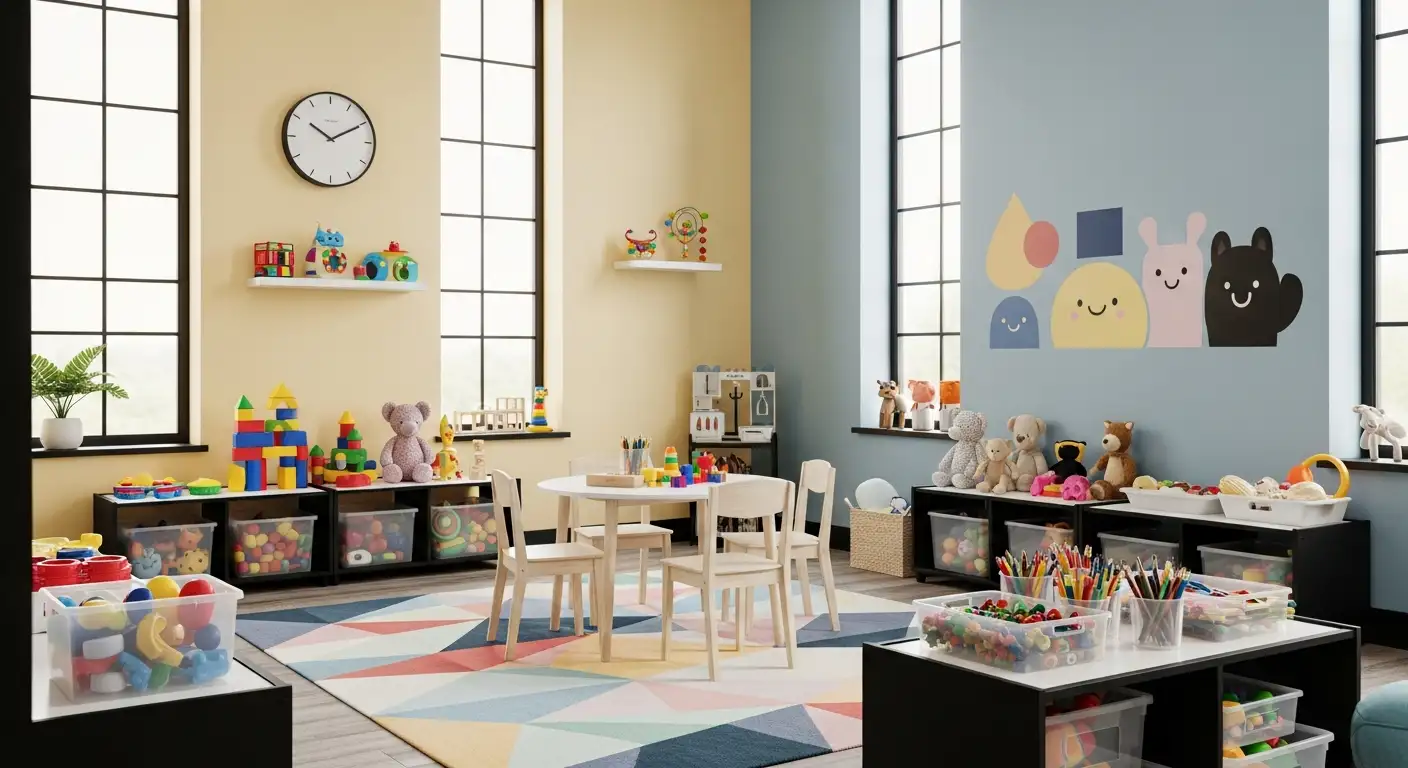Understanding the Intersection of Autism and Romantic Relationships
Young adults on the autism spectrum have the innate desire to form meaningful romantic connections, yet face unique challenges that can hinder their social and emotional development. Recognizing these hurdles, professionals and caregivers utilize evidence-based interventions, particularly Applied Behavior Analysis (ABA), to support these individuals in developing the necessary skills for healthy, fulfilling relationships. This article explores how ABA therapy aids young adults with autism in navigating the complexities of romantic relationships, emphasizing practical strategies, research evidence, and the importance of a tailored, compassionate approach.
Foundations of ABA Therapy for Social and Relationship Skills
ABA, or Applied Behavior Analysis, is a widely recognized approach used to support social, communication, and relationship skills in young adults with autism. It employs evidence-based techniques that are highly customizable to each individual's unique needs and abilities.
One of the core methods used in ABA therapy involves role-playing scenarios. This allows individuals to practice social interactions in a safe, controlled environment, helping them understand social cues, appropriate responses, and conversational norms. Visual aids, such as charts or social stories, are also used to reinforce understanding of social expectations and emotional concepts, making abstract ideas more concrete.
ABA programs are tailored to the person's specific challenges and strengths. Therapists set personalized goals and implement reinforcement strategies to motivate progress. Positive reinforcement, like praise or tokens, encourages individuals to use new skills consistently, gradually building confidence and independence.
The approach also involves analyzing the antecedents (what triggers behavior), the behavior itself, and the consequences (what reinforces behavior). This analysis helps therapists modify interventions to reduce problematic behaviors and promote adaptive social skills.
Overall, ABA therapy helps young adults with autism develop meaningful relationships, improve their ability to communicate effectively, and navigate social situations more comfortably. By focusing on functional skills and providing structured support, ABA plays a vital role in fostering greater social acceptance and emotional well-being.
What techniques are commonly used in ABA therapy?
- Role-playing
- Visual aids and social stories
- Reinforcement strategies
- Data collection and behavior analysis
How is ABA therapy personalized for each individual?
| Approach Aspect | Description | Goal |
|---|---|---|
| Individualized plans | Tailored to personal strengths and needs | Maximize effectiveness and engagement |
| Reinforcement strategies | Rewards that motivate specific behaviors | Encourage skill acquisition and consistency |
| Continuous assessment | Regular evaluation of progress | Adapt strategies and ensure growth |
Through these methods and personalized strategies, ABA therapy provides a structured pathway for young adults with autism to enhance their social and romantic relationship skills, leading to more fulfilling interpersonal connections.
Benefits of ABA Therapy in Romantic Relationship Navigation

What are the benefits of ABA therapy for helping young autistic adults navigate romantic relationships?
Applied Behavior Analysis (ABA) therapy plays a significant role in supporting young autistic adults as they develop skills necessary for healthy romantic relationships. One of its main benefits is enhancing communication and social understanding. ABA employs structured, evidence-based techniques to teach social cues, emotional recognition, and appropriate behaviors, which are often areas of difficulty for autistic individuals.
Programs like PEERS® for Young Adults, grounded in ABA principles, have shown promising results. Participants in such programs demonstrate notable improvements in social skills, social cognition, and knowledge related to relationships. These gains are not only observed immediately after intervention but tend to be maintained over at least six months, indicating lasting positive effects.
Moreover, ABA's tailored approach allows for personalization according to each individual’s needs and strengths. Its use of positive reinforcement encourages desirable behaviors, making learning engaging and effective. This adaptability ensures that young adults can build confidence and competence in social and romantic contexts.
Overall, ABA therapy provides tools for better understanding social cues, expressing emotions appropriately, and establishing meaningful connections. These improvements foster more satisfying and respectful romantic relationships, empowering autistic young adults to navigate the complexities of love and partnership with greater ease.
Strategies and Techniques in ABA for Romantic and Social Skills

What strategies are used in ABA therapy to enhance social and romantic skills in autistic young adults?
Applied Behavior Analysis (ABA) offers several evidence-based methods to help autistic young adults improve their social and romantic abilities. One fundamental strategy is Behavioral Skills Training (BST), which involves explaining the desired skill, modeling it through demonstrations, and providing feedback to reinforce correct behavior. This structured approach helps individuals learn behaviors such as initiating conversations, recognizing social cues, and expressing emotions appropriately.
Discrete Trial Training (DTT) is another technique tailored to individual goals. It breaks down complex skills into manageable steps, allowing for repetitive practice and mastery. Social skills programs like PEERS® integrate ABA principles by teaching skills such as understanding consent, managing rejection, and navigating dates. These programs often use role-playing, social stories, videos, and reinforcement to make learning engaging and effective.
Group and peer-mediated interventions provide real-world environments for practicing social interactions. These settings enable social opportunities beyond individual therapy, fostering genuine relationship development. Collaboration with caregivers—parents, friends, or partners—is also essential to ensure that skills are applied consistently across different contexts.
Finally, integrating customized approaches tailored to each person's unique goals is vital. Resources like UCLA's Center for Autism Research and Treatment incorporate multidisciplinary strategies, ensuring that therapy addresses both social and romantic skills within the broader context of personal development.
For those interested in exploring these interventions further, searching with terms like
Guidance for Autistic Young Adults in Managing Romantic Relationships

How can young adults with autism manage romantic relationships, and what guidance can ABA provide?
Young adults on the autism spectrum can successfully navigate romantic relationships by focusing on developing strong communication skills and understanding personal boundaries. Applied Behavior Analysis (ABA) offers targeted strategies that can be tailored to individual needs, making social skills learning more effective.
ABA techniques include the use of social stories, role-playing scenarios, and social skills training to help autistic individuals recognize social cues, express their feelings, and understand others’ intentions. These methods help build confidence in interactions with potential partners, fostering healthier relationships.
It is also essential to support non-traditional relationship styles, such as polyamory or platonic arrangements, recognizing that fulfilling relationships do not always conform to conventional norms. Emphasizing consent and respect for boundaries—whether physical, emotional, or sensory—is vital for safety.
Teaching about signs of healthy versus unhealthy relationships can prevent abuse and promote well-being. Respecting sensory differences, such as sensitivities to touch or noise, should be integrated into relationship education.
Understanding that expressions of love and connection may look different for autistic individuals is important. Some might show love through helpful actions, gifts, or loyalty, which are deep and genuine forms of affection.
Overall, ABA-guided approaches, combined with flexible, personalized support, empower autistic young adults to build meaningful, confident romantic relationships that respect their unique ways of experiencing and expressing intimacy.
For additional resources, searching
The Impact of Special Interests and Neurodiversity on Romantic Relationships

What challenges do young adults with autism face in dating and relationships, and how can ABA help address them?
Young adults on the autism spectrum often encounter specific challenges when it comes to romantic relationships. Difficulties in interpreting social cues, managing emotional responses, and expressing intimacy are common barriers. Sensory sensitivities and differences in communication styles, such as literal understanding or preference for routines, can make social interactions overwhelming or confusing.
Applied Behavior Analysis (ABA), including programs like UCLA’s PEERS®, offers practical support. These interventions teach essential social skills, including effective communication, understanding personal boundaries, and ensuring safety during interactions. Tailored therapies, like Relationship Development Interventions (RDI), also help foster emotional regulation, trust, and honesty, which are crucial for building strong bonds. Importantly, acknowledging and accepting autistic traits, such as unique ways of expressing love, prepares individuals for meaningful connections.
Through consistent support, open dialogue, and specialized therapies, autistic young adults can develop the confidence and skills needed to navigate romantic relationships successfully. This approach promotes mutual understanding and enhances the quality of their social and emotional lives.
Supporting Healthy Relationships Through Education and Community Resources

What is the importance of relationship education for autistic youth and adults?
Building social skills and understanding relationship dynamics are crucial for autistic individuals to form and sustain meaningful romantic connections. Specialized programs like PEERS® for Young Adults have demonstrated measurable improvements in social cognition, social knowledge, and practical skills, helping participants navigate dating, friendship, and romantic interactions more confidently. Early education on bodies, boundaries, consent, and emotional understanding helps prevent misunderstandings and risky behaviors. Designing tailored interventions helps these individuals recognize and reciprocate affection, interpret social cues, and communicate effectively.
How can community activities, support groups, and online resources facilitate relationship development?
Community-centered activities provide safe environments for social interaction, fostering opportunities to practice social skills. Support groups and online platforms extend access for autistic young adults to connect, share experiences, and learn from others, reducing feelings of isolation. These resources can help build confidence, offer guidance on navigating online dating, and identify red flags, ensuring safer experiences. It’s essential for individuals to be aware of the risks of exploitation and predators online and to learn strategies for maintaining boundaries.
What are the risks of exploitation and predators?
While social platforms and community activities are beneficial, they can expose autistic individuals to potential exploitation. Vulnerability to manipulation, stalking, or harassment can increase without proper awareness and safeguards. Educating autistic youth and adults about healthy boundaries, recognizing red flags, and practicing safe interactions are vital components of relationship education. Caregivers, support workers, and professionals should emphasize ongoing vigilance, teaching strategies for protecting themselves while fostering independence and romantic exploration.
Fostering Independence and Connection through Evidence-Based Support
Through targeted, evidence-based interventions like ABA therapy, young adults on the autism spectrum can acquire the social, communication, and emotional skills necessary for creating and maintaining romantic relationships. These tailored strategies address their unique challenges and strengths and are backed by extensive research demonstrating their effectiveness. As community resources, education, and personal support systems continue to evolve, autistic young adults are increasingly empowered to pursue fulfilling, loving relationships with confidence and authenticity. Ultimately, integrating ABA with comprehensive relationship education not only enhances individual well-being but also promotes social inclusion, acceptance, and mutual understanding in a diverse society.
References
- Dating and Romantic Relationships for Adults/Teenagers with Autism
- Supporting Autistic Teens and Young Adults in Navigating Dating ...
- Helping a Young Adult with Special Needs Develop Dating Skills
- Fostering Friendship and Dating Skills Among Adults on the Autism ...
- Romantic Relationships for Young Adults With Asperger's Syndrome ...
- Autism relationships: Dating as an autistic teen
- Autism Dating Advice: Helping Your Autistic Teen or Young Adult ...
- Do Autistic Individuals Easily Fall in Love? | All Star ABA
- Applied Behavior Analysis (ABA) | Autism Speaks




.avif)

